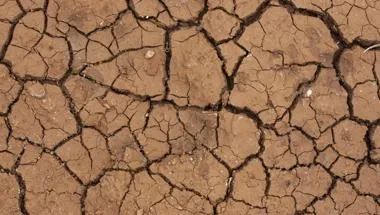
Biography
Harriet is a PhD student in the Department of Geography, studying multi-hazard interrelationships and impact. Her research focuses on using quantitative and qualitative methods to characterise natural hazard interrelationships and better understand impact in the context of multi-hazard scenarios. This will be applied to a case study in Kathmandu, Nepal.
Harriet is the recipient of a King’s funded studentship associated with the UKRI Global Challenges Research Fund (GCRF) project Tomorrow's Cities. She graduated from the University of Bristol in 2021 with an MSci in Geology with Study Abroad, at the University of Hong Kong (HKU) and University of Iceland (Háskóli Íslands).
Research
Thesis title: Using quantitative and qualitative methods for multi-hazard impact knowledge in urban poor communities: A case study in Kathmandu, Nepal.
Although there has been in-depth research on physical sciences approaches to single hazards and disaster risk reduction (DRR) in urban poor areas such as those in Kathmandu, the application of such methods to understanding multi-hazards is still developing. There is still a sparse understanding of the relationship between primary and secondary hazard intensities, and of hazard to impact intensities, particularly with regards to quantifying these relationships. Studies have investigated the challenges facing urban poor communities in Kathmandu, yet they have predominantly addressed social-economic issues independently rather than their contribution towards multi-hazard vulnerability. Equally sparse in the literature is discussion of the impacts of multi-hazards, despite the high vulnerability of these communities. A range of physical and social science datasets (e.g., secondary instrumental/field data, peer-review publications, grey literature/social media) will be used to characterise hazard interrelationship events, including primary hazards triggering/amplifying secondary hazards, and coincidence hazards. The data collection and understanding of the data and interrelationships will be supported by social science methods including interviews and workshops involving key stakeholders engaged with urban poor communities. This will be done in the context of the UKRI Global Challenges Research Fund (GCRF) project Tomorrow's Cities.
PhD supervision
Principal supervisor: Professor Bruce Malamud
Secondary supervisor: Dr Joel Gill
Further details
Research

Physical Geography and Environmental Science research group
Enhancing understanding of processes, drivers and impacts in water, land, atmosphere and ecosystems to address environmental and societal challenges.

Risk, Hazard & Society research group
Advancing understanding of risk and perception, as well as communication and regulation in a range of environmental, social and country contexts.

Centre for Integrated Research in Risk & Resilience
Bringing together research disciplines to shape a critical perspective on resilience and its application as a concept.
Research

Physical Geography and Environmental Science research group
Enhancing understanding of processes, drivers and impacts in water, land, atmosphere and ecosystems to address environmental and societal challenges.

Risk, Hazard & Society research group
Advancing understanding of risk and perception, as well as communication and regulation in a range of environmental, social and country contexts.

Centre for Integrated Research in Risk & Resilience
Bringing together research disciplines to shape a critical perspective on resilience and its application as a concept.
